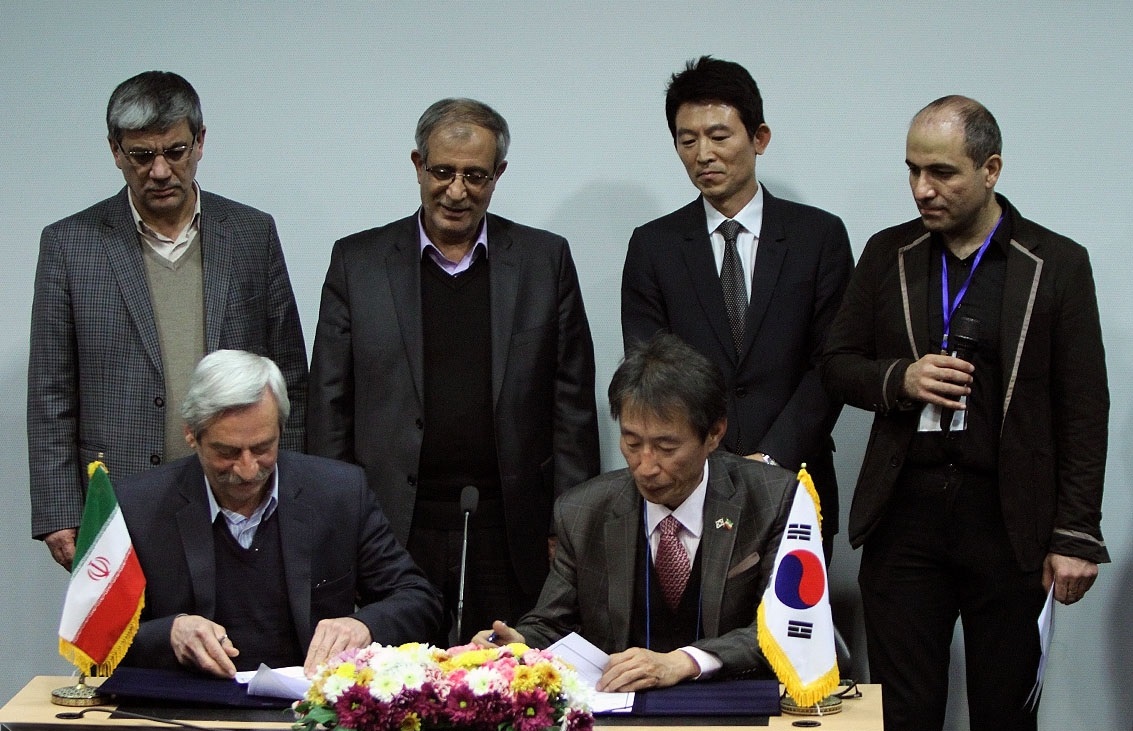Iranian officials have expressed interest in boosting economic ties with South Korea, at a time when Seoul appealed to the U.S. for “maximum flexibility” on sanctions related to dealings with Iran.
A conference between the cooperative chambers of Iran and South Korea was held in Tehran on October 29, aimed at fostering educational ties and boosting trade.
“As specified by the meetings with Korea, we are trying to strengthen the economic spheres that are not subject to sanctions. By this way, we can compensate the existing deficiencies in this sphere,” the head of the Iran Cooperatives Chamber, Bahman Abdollahi, told South Korea’s Ambassador to Iran Ryu Jeong-Hyun, according to a story published by the Iranian news outlet Young Journalists Club.
South Korea is one the biggest importers of Iranian oil that could be hit by the effects of sanctions on Iran, which are scheduled to kick in early next week. South Korea has stopped importing crude oil from Iran in anticipation of the sanctions. The country imported zero Iranian oil in September for the first time in six years.
For months, international companies in the energy, aviation, automotive and shipping sectors have been withdrawing from or scaling back business with Iran to avoid being hit by secondary American sanctions for continuing business.
The South Korean conglomerate Hyundai Engineering & Construction said it canceled a $521 million deal to build a petrochemical complex in Iran due to a lack of financing. Hyundai had signed a contract in March 2017 with Iran's Ahdaf Investment Company, an affiliate of a state-run oil firm, to build a petrochemical complex on the Persian Gulf coast near the southern town of Tonbak.
"The contract was canceled because financing is not complete, which was a prerequisite for the validity of the contract, as external factors worsened, such as economic sanctions against Iran," Hyundai said, according to Voice of America.
In June, South Korea’s Daelim Industrial reported that a 2.23 trillion won ($2 billion) contract to build a refinery project in Iran would be canceled due to financing concerns.
The tough measures being imposed on Iran are a move by the Trump administration to limit its nuclear and missile programs.
On Tuesday, South Korean Foreign Minister Kang Kyung-wha asked for an exemption in a telephone call with U.S. Secretary of State Mike Pompeo.
“Minister Kang requested the U.S. side exert maximum flexibility so that South Korea can secure an exemption to minimize the damage to our companies,” read a statement by South Korea’s foreign ministry, according to Reuters. Pompeo said he noted Seoul’s position and would continue discussions on the matter, the report added.
Meanwhile, Iran’s new ambassador to Seoul, Saeid Badamchi Shabestari, said on October 20 that there is a “comprehensive plan” being devised that is aimed at expanding bilateral ties with South Korea in the face of returning sanctions. The plan would address the expansion of relations in political, economic, commercial, cultural, and parliamentary areas.
The volume of bilateral trade between Iran and South Korea surpassed the $12 billion benchmark last year.







 Russian peacekeeping forces, deployed in the Karabakh (Garabagh) region of Azerbaijan since 2020, have commenced their withdrawal from the area.
Russian peacekeeping forces, deployed in the Karabakh (Garabagh) region of Azerbaijan since 2020, have commenced their withdrawal from the area.
 The number of evacuees from flooded areas in Kazakhstan has reached 97,852 people, including about 32,856 children since March 27.
The number of evacuees from flooded areas in Kazakhstan has reached 97,852 people, including about 32,856 children since March 27.
 The Islamic holy month of fasting, Ramadan comes to an end this week with the celebration of a joyous festival called Eid (meaning “festival” in Ar...
The Islamic holy month of fasting, Ramadan comes to an end this week with the celebration of a joyous festival called Eid (meaning “festival” in Ar...
 Azerbaijan officially unveiled the logo for the upcoming 29th session of the Conference of the Parties to the United Nations Framework Convention o...
Azerbaijan officially unveiled the logo for the upcoming 29th session of the Conference of the Parties to the United Nations Framework Convention o...



